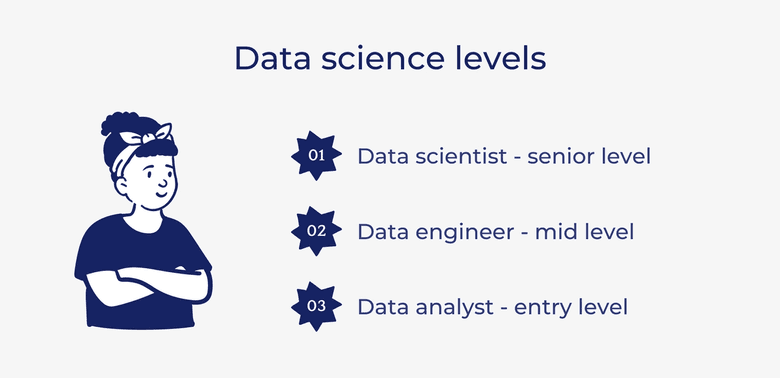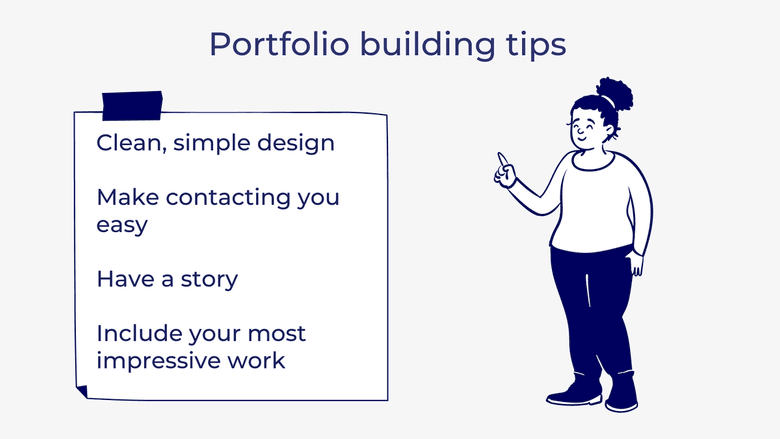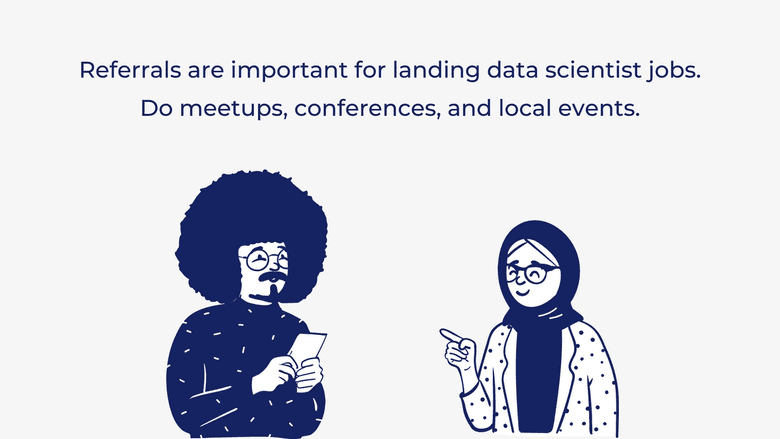Entry level data science jobs — the lay of the land
It can be hard to break into data science - let's talk tactics.
What does it mean to be a data scientist?
A data science career path is not clear cut. Depending on the company size, goals, and structure, the data scientist position looks very different.
As an entry level data scientist, this may be your first full-time role in the field, and your job search might feel pretty frustrating. We'll talk about how to interpret a data science job description and how to set yourself up for a successful job hunt.
What companies see as a "data scientist" varies widely

Before you even look at job postings or talk to recruiters, let's talk about how you should interpret the job description.
Let's start with an example:
Let's say the data science team at Expedia wants to emulate Pinterest's deep learning technology to recognize pictures of different hotels that are being uploaded by customers. There are millions of photos uploaded to Expedia every day, making it hard to display the best photos in reviews for each hotel. Some users may upload very similar photos of the interior of the hotel or the food served at the restaurant. Expedia wants the images comprehensively evaluated to provide a full review of the hotel. The team also thinks they can use machine learning to classify the photos and automatically include photos a specified category. To achieve this goal, you need to help the computer use a training set to identify which photos are the exterior of the hotel and which photos are just food.
The data scientist is responsible for...
- Building the model,
- Letting the machine create different picture categories, and
- Extracting all relevant data types from the keywords of the photos and photo captions marked by the user.
This is a senior role on the team, usually managing the full life cycle of data products, and solving data science problems from algorithm selection to engineering design.
The data engineer is responsible for...
- Building the system,
- Acquiring and storing all picture data, and
- Implementing the algorithm selected by the data scientist.
This position requires superior technical skills, but does not require an in-depth understanding of algorithm theory.
The data analysts are responsible for...
- Querying data,
- Showing the impact of business changes, and
- Answering questions like "How much traffic has the recent revision brought to Expedia?"
A good data analyst is good at knowing what questions they need to answer to measure success of the product. In addition, the data analyst must communicate the results of the data analysis to multiple stakeholders. This is considered an entry-level position.
The interviews for each of these types of data science position are completely different.
Build your portfolio to land one of these roles

If you want to land a job in data science, applying to job postings on LinkedIn is rarely the way to go, especially for an entry-level role.
Many of these roles, even if posted, will be filled by returning interns. Having a strong portfolio of data science projects and a strong job referral is the best way to go, if you want to be the ideal candidate. An emerging trend for the junior data scientist is to also have your own website showcasing your projects.
Some tips to build a strong portfolio...
- Focus on a clean, simple design
- Make it easy for folks to contact you
- Have a story. Did you make something that went viral? Have you worked on interesting problems?
- Ruthlessly curate your most impressive work. You should have 2-3, not 5-10 projects to highlight.
Your portfolio doesn't need to be its own website if you don't have the time or skills to develop it, especially early in your career. Start by keeping a repository of all of the projects you did during your academic coursework, your thesis or dissertation (if applicable), and a thoughtfully selected group of 'learning' projects (where the focus was almost entirely about learning a skill). Here are some of our favorite projects that fit the caliber of "portfolio worthy":
- iSee: Using deep learning to remove eyeglasses from faces (in a Medium post)
- Eluding Mass Surveillance: Adversarial Attacks on Facial Recognition Models (in an academic paper)
For the ultimate portfolio example...
Donne Martin's repo of Jupyter notebooks on GitHub and David Venturi's portfolio. They're insanely well done, even scarily so. A portfolio of this quality is not required (or anticipated), but having a way to showcase practical achievements and learnings is critical. We will dedicate an entire post soon on how to nail this.
Networking is key!

Take time to meet people in the data science community. Entry-level jobs with tech companies are all about referrals. A very small number of people get in straight from university recruitment. So get out there! Do meetups, conferences, and other local events.
For conferences, Strata takes place worldwide in different cities. Speakers come from academia and private industry to talk about cutting-edge data science trends in action. Practical workshops are provided if you want to learn the technology behind data science, and there are plenty of networking events.
For meetups, SF Data Science is one of the longest-standing ones. There are also local hackerspaces, like Noisebridge in SF where you can drop in for free to learn and network with folks.
The information provided herein is for general informational purposes only and is not intended to provide tax, legal, or investment advice and should not be construed as an offer to sell, a solicitation of an offer to buy, or a recommendation of any security by Candor, its employees and affiliates, or any third-party. Any expressions of opinion or assumptions are for illustrative purposes only and are subject to change without notice. Past performance is not a guarantee of future results and the opinions presented herein should not be viewed as an indicator of future performance. Investing in securities involves risk. Loss of principal is possible.
Third-party data has been obtained from sources we believe to be reliable; however, its accuracy, completeness, or reliability cannot be guaranteed. Candor does not receive compensation to promote or discuss any particular Company; however, Candor, its employees and affiliates, and/or its clients may hold positions in securities of the Companies discussed.
